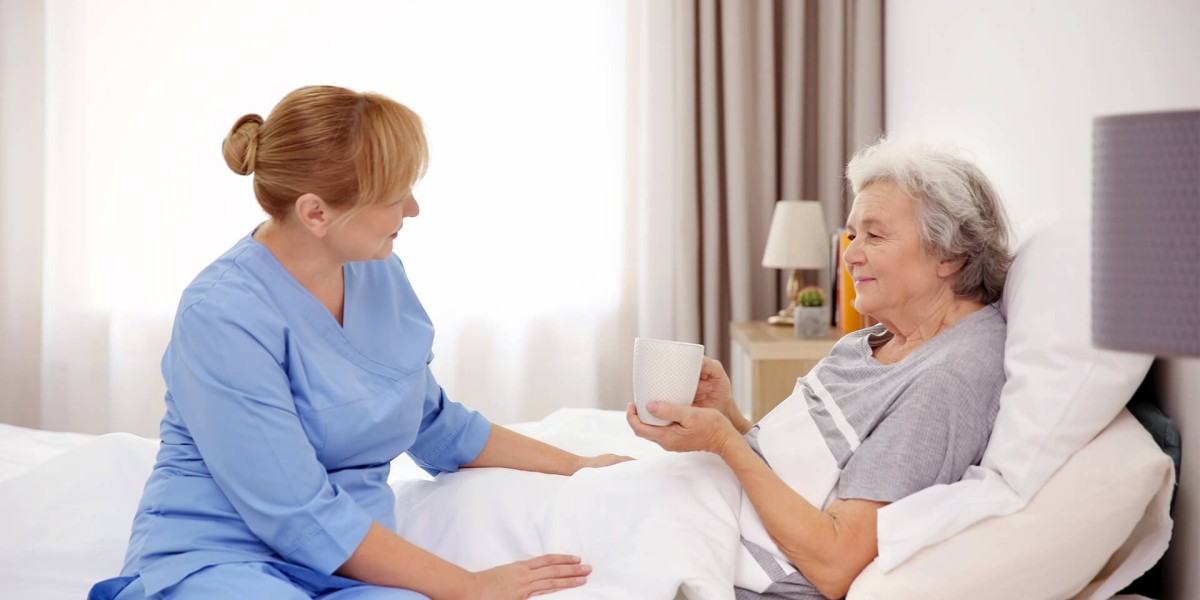Home monitoring cameras in Dubai have become an essential tool in modern The latest home healthcare technologies in the Arab world(أحدث تقنيات الرعاية الصحية المنزلية في العالم العربي). These devices allow families to ensure the safety of elderly or chronically ill members while enabling caregivers to provide real-time supervision. Integrating these technologies into Home Healthcare(الرعاية الصحية المنزلية) practices is transforming the way care is delivered, ensuring a balance between privacy, safety, and effective monitoring. As more households adopt these systems, understanding their functionality, benefits, and considerations is vital.
What Is Home Monitoring and How It Works:
Home monitoring cameras are smart devices that capture real-time video and sometimes audio to track the wellbeing of patients at home. They work by connecting to secure networks and transmitting live feeds to authorized users, such as family members or home healthcare professionals. Advanced models include motion sensors, fall detection, and alerts for unusual activities, which help in early intervention. The integration of Home Healthcare in Dubai(الرعاية الصحية المنزلية في دبي) ensures that these systems can communicate with wearable devices and medical applications to provide a complete view of the patient’s health.
Importance Of Home Monitoring Cameras:
The importance of home monitoring cameras lies in their ability to enhance safety and care efficiency. They support Home healthcare for chronic patients in Dubai(الرعاية الصحية المنزلية للمرضى المزمنين في دبي) by providing continuous supervision without intruding on personal privacy. Families gain peace of mind knowing that potential accidents, such as falls or sudden health emergencies, can be immediately identified. Moreover, these devices contribute to The importance of artificial intelligence in developing home healthcare services(أهمية الذكاء الاصطناعي في تطوير خدمات الرعاية الصحية المنزلية), as AI algorithms analyze patterns and detect anomalies that may otherwise go unnoticed.
Types Of Home Monitoring Cameras:
There are several types of home monitoring cameras tailored to different needs:
Fixed Indoor Cameras: Ideal for continuous observation in living spaces and bedrooms.
Pan-Tilt-Zoom (PTZ) Cameras: Offer flexible coverage, allowing caregivers to remotely adjust viewing angles.
Wearable Cameras: Integrated into wristbands or clothing to provide mobile tracking for active patients.
AI-Enabled Cameras: Use motion detection, fall alerts, and health analytics to provide proactive monitoring.
Outdoor Surveillance Cameras: Ensure safety around the home environment and entrances, complementing indoor monitoring.
Preparation and Aftercare:
Before setting up home monitoring cameras, it is essential to:
Identify areas where patients spend most of their time.
Ensure strong and secure Wi-Fi connectivity.
Configure privacy settings to restrict unauthorized access.
Educate family members and caregivers on camera usage.
After installation, regular maintenance is critical. This includes cleaning lenses, updating firmware, and checking alerts for proper functionality. Combining this monitoring with Best practices for training nurses in home healthcare(أفضل ممارسات تدريب الممرضين في مجال الرعاية الصحية المنزلية) ensures caregivers can respond efficiently to emergencies detected by the system.
Ideal Candidate For Home Monitoring:
Home monitoring cameras are suitable for:
Elderly individuals requiring constant supervision.
Patients with chronic illnesses needing regular observation.
Families who want to maintain safety while promoting independence.
Caregivers managing multiple patients simultaneously.
These devices particularly benefit those exploring Benefits of home healthcare for the elderly compared to hospitals(فوائد الرعاية الصحية المنزلية لكبار السن مقارنة بالمستشفيات), as they reduce unnecessary hospital visits while maintaining high-quality care at home.
How To Choose The Right System:
When selecting a home monitoring system, consider:
Compatibility with existing Home Healthcare in Abu Dhabi(الرعاية الصحية المنزلية أبو ظبي) or Dubai platforms.
Ease of use and intuitive interface for family members.
AI and sensor features that enhance predictive care.
Data encryption and privacy measures to protect sensitive health information.
Customer support and updates from the technology provider.
These factors ensure the device integrates smoothly into The future of home healthcare in the Middle East(مستقبل الرعاية الصحية المنزلية في الشرق الأوسط), offering sustainable and safe solutions.
Risks, Benefits, and FAQs:
Risks:
Privacy concerns if cameras are accessed by unauthorized users.
Overreliance may reduce physical check-ins from caregivers.
Technical failures or internet interruptions can compromise monitoring.
Benefits:
Enhanced safety for patients and peace of mind for families.
Real-time alerts and early intervention during emergencies.
Integration with other The latest home healthcare technologies in the Arab world(أحدث تقنيات الرعاية الصحية المنزلية في العالم العربي) for comprehensive care.
Supports Home Healthcare in Abu Dhabi(الرعاية الصحية المنزلية أبو ظبي) and Dubai by reducing hospital dependency.
FAQs:
Q: Can cameras invade patient privacy?
A: Proper placement and secure access can maintain privacy while ensuring safety.
Q: Are AI-enabled cameras reliable for chronic patients?
A: Yes, AI provides predictive alerts and reduces risks of unnoticed emergencies.
Q: How does this affect home healthcare costs?
A: While setup has initial costs, it can optimize care, complementing Home healthcare costs in the UAE by 2025 (2025 تكاليف الرعاية الصحية المنزلية في الإمارات لعام).
Conclusion:
Dubai’s home monitoring cameras represent a pivotal advancement in Home Healthcare in Dubai(الرعاية الصحية المنزلية في دبي), providing safety, convenience, and enhanced patient care. By combining AI technology, secure monitoring, and proper training, these systems redefine how families and caregivers manage health at home. With growing adoption, they promise a future where Factors affecting the cost of home healthcare(العوامل المؤثرة في تكلفة الرعاية الصحية المنزلية) are optimized, risks minimized, and patient wellbeing prioritized in the evolving landscape of The future of home healthcare in the Middle East(مستقبل الرعاية الصحية المنزلية في الشرق الأوسط).






